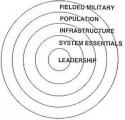In practice, of course, things did not quite work out that way. Much like the efforts of the United States and its allies -- building schools without teachers to man them and promoting farming in desertlike areas where nothing grows -- the Soviet attempt at nation-building suffered from poor coordination, ill-planning, and a misunderstanding of indigenous culture. Moscow informed soldiers they were not in Afghanistan to spread communism, but to help people feel the tangible benefits of a working government. Still, enthusiastic party workers drew on Soviet propaganda and organizing principles, often alienating the local population.
These problems were compounded by rivalries among various Soviet agencies and institutions operating on the ground. Aid sometimes did not reach its destination because military commanders refused to relinquish the necessary transport vehicles or provide security. In other cases, Soviet representatives found that their Afghan "clients" had no intention of playing along with their nation-building plans. On one occasion, the KGB cultivated and promised protection, money, and a house to the leader of an insurgency group. The local governor, in turn, promptly denied the insurgency leader the promised housing and seized the cell's weapons
Likewise, though the Afghan military looked strong on paper, with more than 300,000 men and a generous supply of Soviet weaponry, it proved incapable of leading offensive operations. Within several months Soviet troops were fighting the insurgency directly, while Afghan forces did not take the lead in an operation until 1986. The complaints of Soviet officers working with Afghan troops would sound familiar to U.S. and NATO officers today. Recruitment proved difficult. Desertions were rife. Corruption was widespread. Troops avoided going into battle for fear of retribution against their families.
The broader security and occupation dilemma was familiar as well. The Soviet military was perfectly capable of clearing an area of insurgents, albeit not without significant collateral damage. But Moscow never sent enough troops to keep those areas free of insurgents once an operation was completed. There were never more than about 108,000 Soviet troops operating in Afghanistan at any given time











 However...
However...






Bookmarks